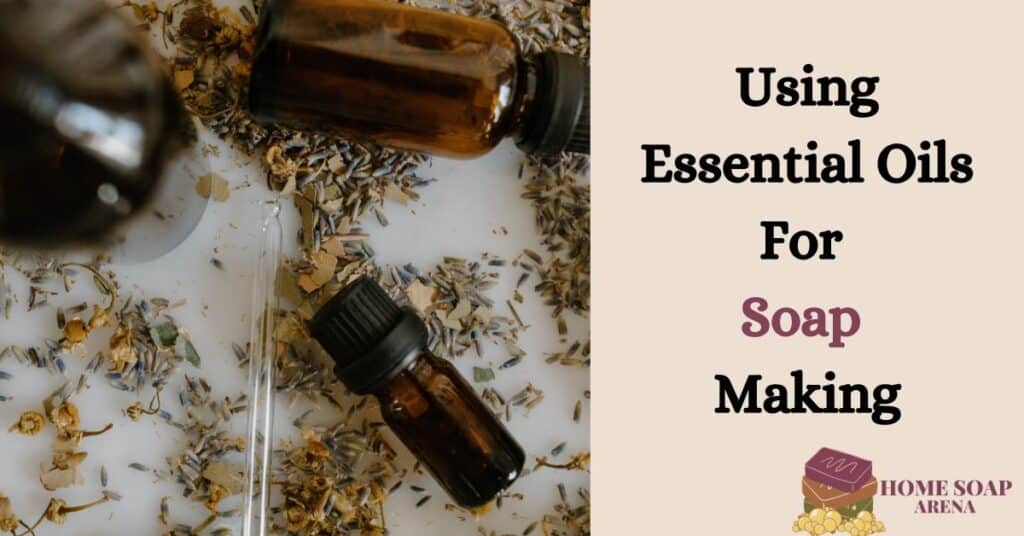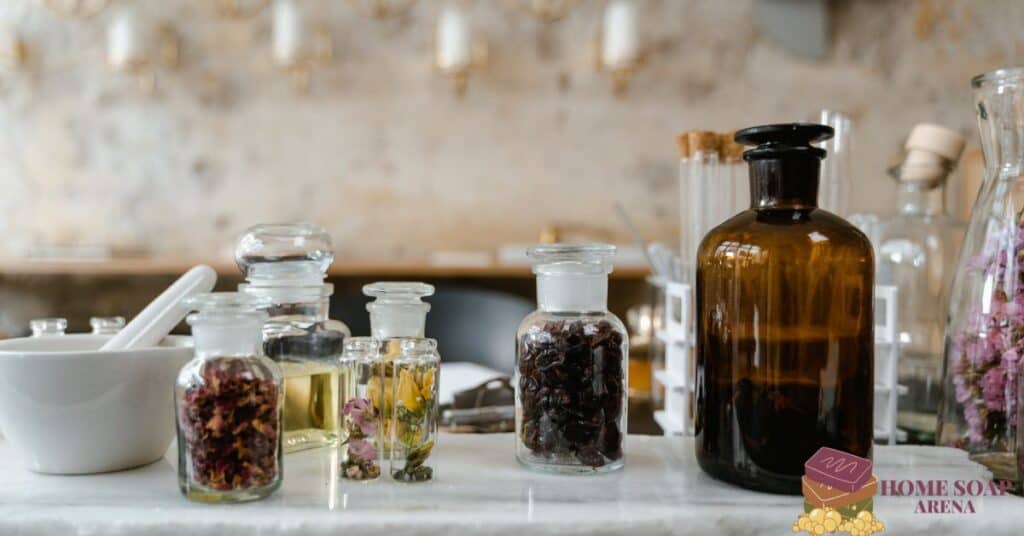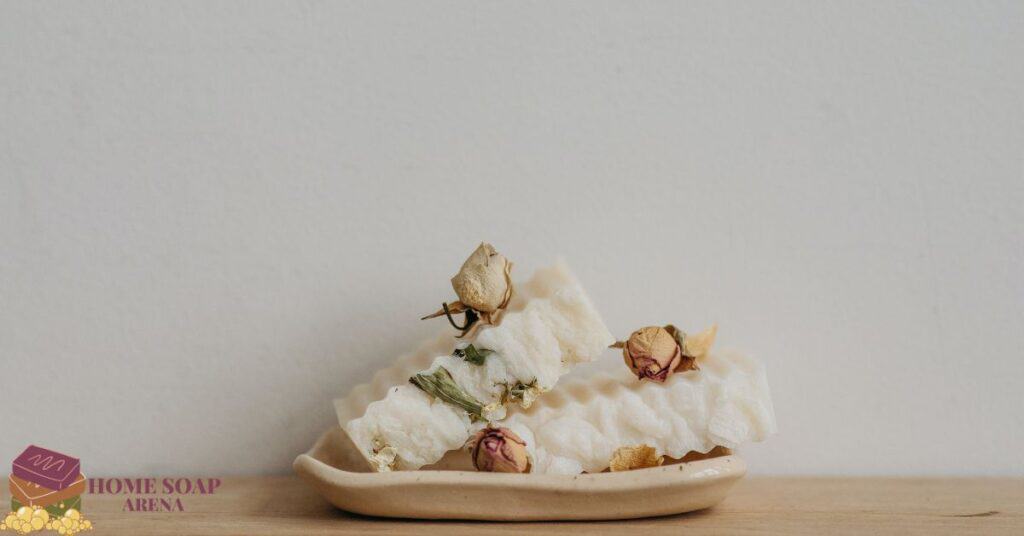Table of Contents
- Who are the soap-making suppliers in Australia
- Which essential oil is best for Soap making in Australia
- Essential Oil of Lavender
- Essential Oil of Lemon
- Clary Sage Aromatherapy Oil
- Essential Oil of Tea Tree
- How to choose your essential oils for making Soap in Australia
- Can I use any essential oil for soap making in Australia
- How much essential oil per kg of Soap in Australia
- What is the maximum amount of essential oils in soap making in Australia
- How to mix essential oils for soap making in Australia
- Final thought
Do you want to know the Essential oils for soap-making in Australia? I will show you where to get the essential oils for soap making in Australia.
When my Husband first moved to Australia (I was in Canada then), He didn’t know where to get all the essential oils I needed for my soaps.
But after some weeks of research, I got it all, which I will share with you the same way I shared with him.
Many soap makers in Australia practice their trade to avoid chemicals, allergies, poisons, and other undesired compounds.
The ultimate objective is to make natural handmade soap; nothing is more realistic than essential oils.
However, the real magic is in deciding which one to utilize.
Your selection will determine the personality and aroma of your DIY handcrafted soap.
Above all, nothing beats the sensation of incorporating a touch of exquisite art into your everyday hygiene regimen.
As you keep reading, we’ll discuss the many kinds of essential oils you can buy and try.
As we help you, let your mind run wild and free.
Now, Let’s get started,
Who are the soap-making suppliers in Australia
This list, which is not exhaustive, contains links to the suppliers I have used over the years, those I have suggested, and those I found during my research.
Since I have yet to experience with all listed suppliers, please use your best judgment when choosing who to buy from.
Supermarkets provide a variety of essential oils for manufacturing soap, making them an excellent spot for novices to start.
Specialist vendors may be found online, making purchasing specialist oils, waxes, butter, essential oils, botanical ingredients, and colorants more straightforward.
The small-scale hobby soap producers on this list, like myself, are intended! If you’re considering starting a soap-making business, you might want to conduct more research via localized internet forums and communities.
The Australian Soapmakers group on Facebook has some excellent, comprehensive materials for Australian soap makers.
Before you think about devoting time or resources to producing and distributing soap for a living, I strongly advise doing extensive study there.
Which essential oil is best for Soap making in Australia
Mix these oils with other essential oils or make soaps with exciting qualities and scents.
When manufacturing soap, the following essential oils work best.
Essential Oil of Lavender
Because of its herbaceous and flowery undertones, Lavender Essential Oil is appropriate for a wide range of soaps. It is one of the most extensively utilized essential oils today, even available in pharmacy shops.
However, you must proceed cautiously since only pure and organic lavender essential oil is acceptable for the skin.
The compatibility of this essential oil with practically all of the materials needed to produce soap is a benefit.
You may also easily combine them with other essential oils to create blends. It is also one of the most economical and crucial oils if you want to maintain quality.
It soothes your skin while also improving its suppleness and texture.
Essential Oil of Lemon
Lemon Essential Oil makes the face lighter and works as a scrub. Several soap makers use it because of all the good things it can do.
Because it has a lot of vitamins, this essential oil is good for your face. These antioxidants preserve your skin while keeping it looking fresh.
Because citric acid is so concentrated in lemon essential oil, you only need a few drops to improve the quality of your soaps.
Your customers will also like the energizing lemon smell, leaving them enthusiastic and active after each bath!
Clary Sage Aromatherapy Oil
Clary sage essential oil is a fantastic choice for adding herbal and earthy fragrances to your soaps.
It also has subtle fruity and flowery overtones, giving your soap bars a particular aroma.
Clary sage essential oil might be difficult to locate in stores and shops, but it is easy to find online.
Pure variations should be sought, while dummy versions should be avoided.
It also blends beautifully with bergamot, cedarwood, ylang-ylang, and lemon essential oils.
Essential Oil of Tea Tree
Tea tree essential oil smells very herbal and camphorous, in addition to being beneficial to the skin. This fragrance might help to distinguish the aroma of your soaps.
It also assists in the reduction of stress and anxiety. As a result, it enhances the overall appeal and utility of the soap bars when they are used.
Because it can heal several skin disorders, it makes upscale soap bars.
Add citrus or spicy essential oils to make the soap smell more substantial and inviting.
The essential oils of clary sage, lemon, orange, bergamot, and rosemary go well with tea tree oil.
Because of its extensive medical and therapeutic benefits, utilizing it as a single essential oil in soaps is also more than enough.
How to choose your essential oils for making Soap in Australia
The following factors guided my decision when selecting the best essential oils for creating soap:
Price Paid for Versatility
Possibility of Access
These essential oils may be found in a wide variety of my mixes, where they are combined with a wide variety of other essential oils as well as each other.
Because of this, I believe these are the most beneficial items in your supply inventory (regardless of whether you intend to utilize them on their own or in mixtures).
There is a wide range of prices and quantities available.
Still, you have the flexibility to pick and choose which essential oils to include in your arsenal according to the resources you have available to you financially.
Also, remember that the cost changes greatly depending on the season and the agricultural yields of any given year; something reasonable right now may not continue to be affordable in the next year.
Can I use any essential oil for soap making in Australia
The basic answer is yes. Several plant oils may be utilized in soap. Lavender, rosemary, eucalyptus, and mint are among our favorites.
However, there are plenty more excellent solutions available.
Experiment to find the best combination for you!
Essential oils are an excellent approach to combat body odor.
They have a lovely aroma and contain antibacterial and antifungal qualities, which assist in lessening the severity of body odor.
Some of the most popular essential oils for body odor are tea tree oil, lavender oil, peppermint oil, and rosemary oil:
1. Due to its potent antibacterial and antifungal characteristics, tea tree essential oil is excellent for decreasing body odor.
It also has a lovely, woody aroma that works well as a deodorant when applied to the skin or mixed with lotion.
2. Lavender essential oil is recognized for its peaceful and relaxing aroma, which can reduce body odor severity.
It also has antiseptic qualities that help eliminate germs and fungi that cause body odor.
3. Peppermint essential oil provides a cool and refreshing perfume that combats body odors while delivering a pleasant sensation.
It also contains antibacterial and antifungal qualities, making it an efficient deodorant.
Last but not least, rosemary essential oil is a potent herbal perfume that eliminates body odor. Its antifungal and antibacterial qualities also aid in the reduction of body odors.
Using essential oils to combat body odors is an excellent method to keep your skin smelling fresh and clean.
How much essential oil per kg of Soap in Australia
Around 20ml fragrance per Kilo of Soap (2%) is needed for a noteworthy aroma. Therefore, a few drops of every single bar is sufficient.
A maximum of 3% fragrance addition is often recommended as a guideline.
Depending on their makeup, iridescent powders or glitters may float or sink to the bottom of a mold.
Thus, a suspending base may be helpful to avoid this. Also, glitters and sheens can be lost if used in excess, so use caution for the best effects.
Stir together all of these ingredients rapidly and pour into whichever mold you’re using before a skin forms since this will ruin the gloss of the final bar.
Nothing prevents you from quickly re-heating the combination while it is still in its microwaveable container, but remember that a few seconds is all it will require.
Excessive heat will remove the aroma, so avoid it if possible.
Avoid introducing bubbles into the soap mixture, which will also detract from the final appearance.
The mixture begins to set fast, trapping any bubbles or other flaws, which is especially problematic when making translucent soap with a clear base.
If you have access to denatured alcohol (rubbing alcohol is available from certain chemists), ‘spritzing’ the surface of the soap with alcohol shortly after pouring will remove surface bubbles and produce a more excellent finish.
What is the maximum amount of essential oils in soap making in Australia
The essential oils in your soap mix should be at most 3%.
A good rule of thumb for combining essential oils during soap-making is 30% top notes, 50% middle notes, and 20% base notes.
Top notes are the first aromas detected by your nose in a combination. The top notes are lighter, brighter fragrances like lemon and tea tree.
Following that, your nose detects middle notes, which are a little deeper and help to balance the combination.
Middle notes include lavender and rosemary oils.
The deepest and earthiest tones in a scent are the base notes. Sandalwood, patchouli, and vetiver are among the oils used.
These percentages can be adjusted somewhat depending on the potency of each oil. If you’re using a lighter-scented oil, you may need more for your mix, while a stronger-scented oil may require less.
Because certain essential oils weigh more or less than others, it is critical to consider your blends so that the percentages stay accurate.
How to mix essential oils for soap making in Australia
Here are some other things to think about when blending essential oils for soap making:
1. Experiment with essential oil mixtures to develop a distinct smell signature. For example, blend lavender and peppermint for a calming yet invigorating aroma.
2. Because some essential oils are more expensive, try using a less expensive oil as a base and then add a little drops of a more expensive oil for a touch of luxury.
3. When producing soap for sensitive skin, pick essential oils that are soothing and non-irritating. Chamomile, calendula, and rose are all acceptable choices.
4. Always use pure essential oils devoid of additives and contaminants. This ensures that you receive the full advantages of the oils and that they combine properly with your soap.
Finally, remember to have fun and be creative when creating soap! With some experimenting, you may make unique and gorgeous soaps that smell great and have skin-beneficial properties.
Final thought
Now that I have shown you the essential oils for soap making in Australia.
You can carry essential oils in bottles of up to 100ml can be brought to Australia.
Please keep in mind that the FDA does not control essential oils, nor does it regulate herbs or supplements. This signifies that the FDA has approved no essential oil.
The Therapeutic Products Administration supervises therapeutic product compliance in Australia, analogous to the FDA in the United States and the EMA in Europe.
However, these are my top five essential oils for Australia.
· Kunzea. (Kunzea ambigua)
· Fragonia. (Agonis fragrant)
· Lemon myrtle. (Backhousia citriodora)
· Australian blue Cyprus. (Callitris intratropica)
· Tea tree. (Melaleuca alternifolia)
Remember, making soap allows you to make products specific to your skin’s color, texture, and other aspects.
Homemade at home is excellent, but it is even more important to know where to get it.



